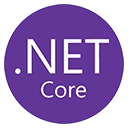ASP.NET Core is a modern, open-source framework for building web applications and services. It comes with a variety of features that enhance development productivity, performance, and scalability. Below are some of the key features of ASP.NET Core explained in detail.
1. Cross-Platform Development
ASP.NET Core is designed to run on multiple platforms, including Windows, macOS, and Linux. This allows developers to build and deploy applications on any operating system, making it a versatile choice for modern development.
2. High Performance
ASP.NET Core is optimized for performance. It uses the Kestrel web server, which is lightweight and fast, allowing applications to handle a large number of concurrent requests efficiently. Benchmarks show that ASP.NET Core applications can outperform many other web frameworks.
3. Modular Architecture
The framework follows a modular design, allowing developers to include only the necessary components for their applications. This results in smaller application sizes and improved performance. You can add or remove features as needed using NuGet packages.
4. Built-in Dependency Injection
ASP.NET Core has built-in support for dependency injection (DI), which simplifies the management of dependencies in your application. This feature enhances testability and promotes a clean architecture.
// Example of Dependency Injection in ASP.NET Core
public class Startup
{
public void ConfigureServices(IServiceCollection services)
{
services.AddTransient<IMyService, MyService>();
}
}
5. Unified Framework for MVC and Web API
ASP.NET Core unifies the MVC (Model-View-Controller) and Web API frameworks, allowing developers to use a single framework for building both web applications and APIs. This reduces complexity and improves the development experience.
6. Razor Pages
Razor Pages is a new feature in ASP.NET Core that simplifies the development of page-focused web applications. It allows developers to create web pages with a more straightforward coding model, making it easier to manage page-specific logic.
// Example of a Razor Page
@page
@model MyPageModel
<h2>Hello, @Model.Name!</h2>
7. Middleware Pipeline
ASP.NET Core uses a middleware pipeline to handle requests and responses. Middleware components can be added to the pipeline to perform tasks such as authentication, logging, and error handling. This provides a flexible way to customize the request processing.
// Example of adding middleware in Startup.cs
public void Configure(IApplicationBuilder app)
{
app.UseRouting();
app.UseAuthentication();
app.UseAuthorization();
app.UseEndpoints(endpoints =>
{
endpoints.MapControllers();
});
}
8. Configuration and Environment Management
ASP.NET Core provides a flexible configuration system that allows you to manage settings using JSON files, environment variables, and command-line arguments. This makes it easy to configure applications for different environments (development, staging, production).
// Example of reading configuration in Startup.cs
public class Startup
{
public Startup(IConfiguration configuration)
{
Configuration = configuration;
}
public IConfiguration Configuration { get; }
}
9. Security Features
ASP.NET Core includes built-in security features such as authentication and authorization, data protection, and HTTPS enforcement. These features help developers build secure applications that protect user data and prevent unauthorized access.
10. Open Source and Community Support
ASP.NET Core is open-source and has a large community of developers contributing to its development. This means that you can benefit from community support, extensive documentation, and a wealth of third-party libraries and tools.
Conclusion
ASP.NET Core is a powerful framework that offers a wide range of features for building modern web applications. Its cross-platform capabilities, high performance, and modular architecture make it an excellent choice for developers looking to create scalable and maintainable applications. With built-in support for dependency injection, a unified framework for MVC and Web API, and a flexible configuration system, ASP.NET Core empowers developers to build robust applications efficiently.

